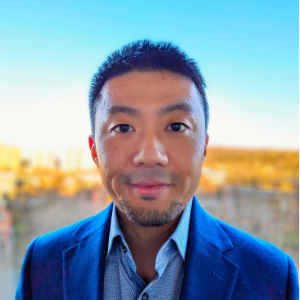Events
Nov 13, 2025
Seminar by Dr. Hovy Wong; Talk title: Local mRNA translation in axons sustains neurotransmission
School of Biomedical Sciences cordially invites you to join the following seminar:
Speaker: Dr. Hovy Wong, Assistant Professor, School of Biomedical Sciences and Gerald Choa Neuroscience Institute, The Chinese University of Hong Kong
Talk Title: Local mRNA translation in axons sustains neurotransmission
Date: 13 November 2025 (Thursday)
Time: 4:00 pm – 5:00 pm
Venue: Seminar Room 4, G/F, Laboratory Block, 21 Sassoon Road
Host: Professor Martin Cheung
Biography

Hovy Wong received his PhD from the University of Cambridge, where he unraveled the roles of local protein synthesis in neural circuit formation and maintenance. After decades of debates, his work changed the way the field thought about the existence of mRNA translation in the axon/presynapse — the neurotransmitter-releasing half of brain connections. His thesis paper was highlighted 5 times by F1000 and featured in Cell Press Selections 2017. He then pursued postdoctoral training at McGill University, where he revealed that axonal mRNA translation sustains neurotransmission. Apart from uncovering unappreciated principles for information transfer and memory, it opens new avenues for neuropathology therapies. Selected by Canadian Association for Neuroscience and Canadian Institutes of Health Research in 2024, Hovy was winner of the Brain Star Award. In 2025, shortly after joining the Chinese University of Hong Kong as an Assistant Professor, he was awarded the International Brain Research Organization Rising Stars Award.
Abstract
For >60 years, memory formation has been linked to protein synthesis, with the prevalent view that nascent proteins originate from the cell body. Yet recent omics studies have found hundreds of mRNAs in axons, challenging the decades-old view.
Using quadruple whole-cell recordings, we found that burst neurotransmission depends on protein synthesis linked to NMDA receptors and mTOR. We localized protein synthesis to axons with 2-photon laser microsurgery and nascent protein live imaging. Live imaging of axons revealed sparsely docked RNA granules, suggesting synapse-specific regulation. In agreement, translation boosted neurotransmission onto excitatory but not inhibitory cells. Local axonal mRNA translation is thus a hitherto unappreciated principle for sustaining burst neural coding at specific synapse types.
Protein synthesis has emerged as a promising candidate target for treating neuropathologies like autism and Alzheimer’s, yet the focus has historically been postsynaptic. Our results highlight intervention potential that relies on synapse-type-specific local translation in axons.
ALL ARE WELCOME.

